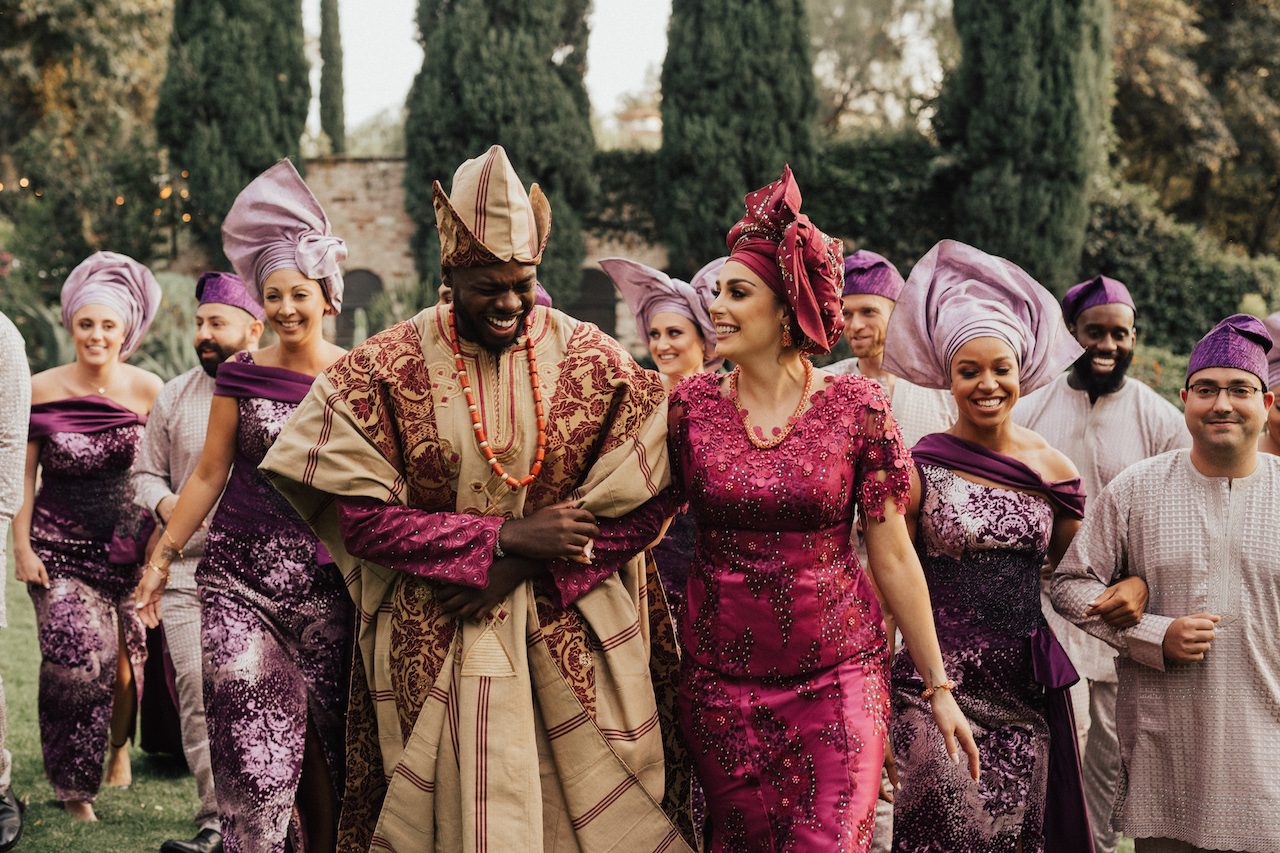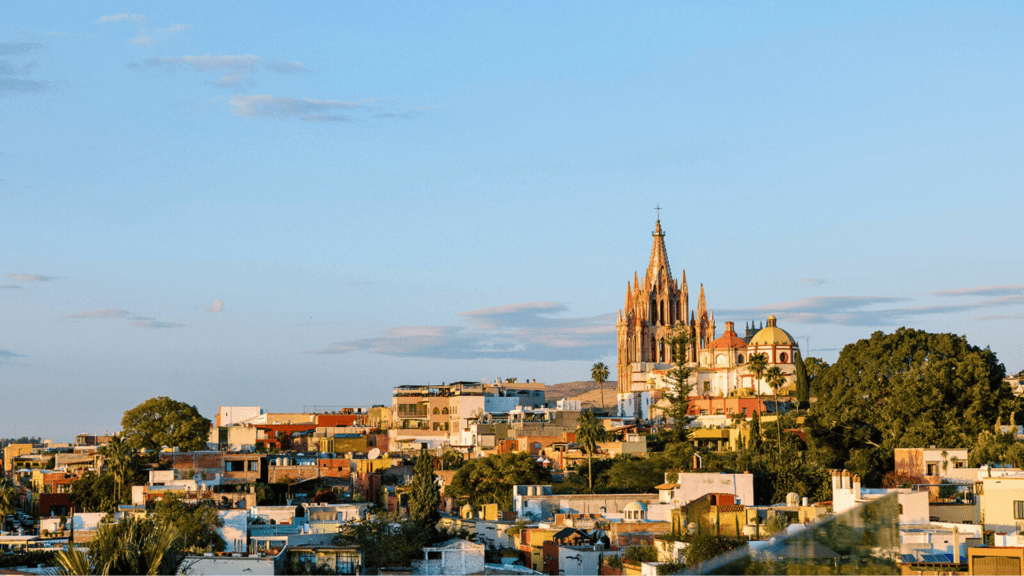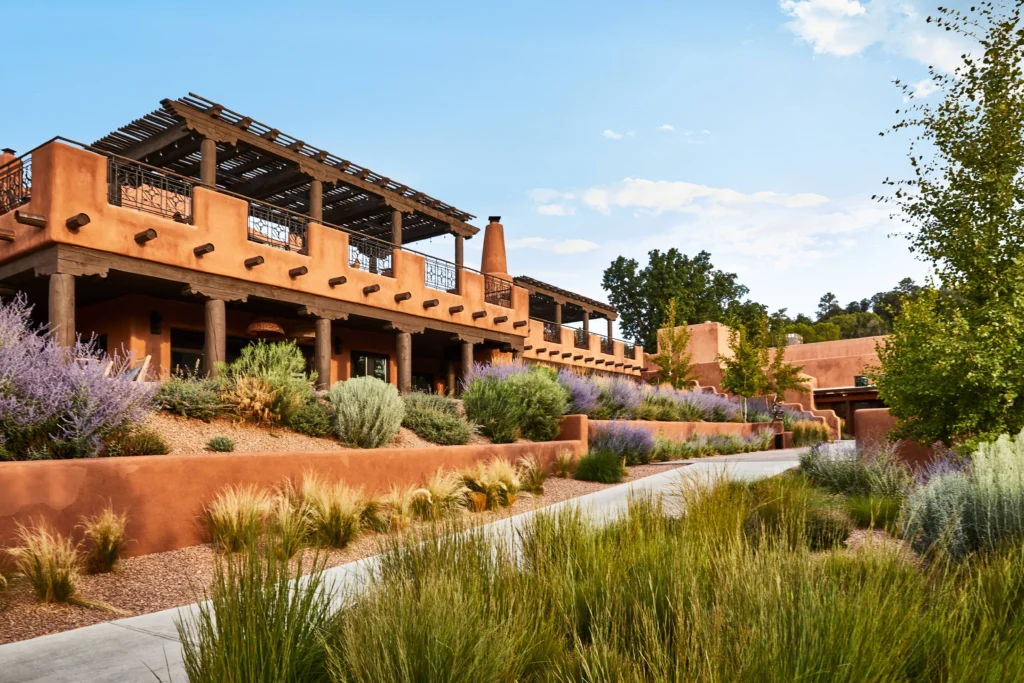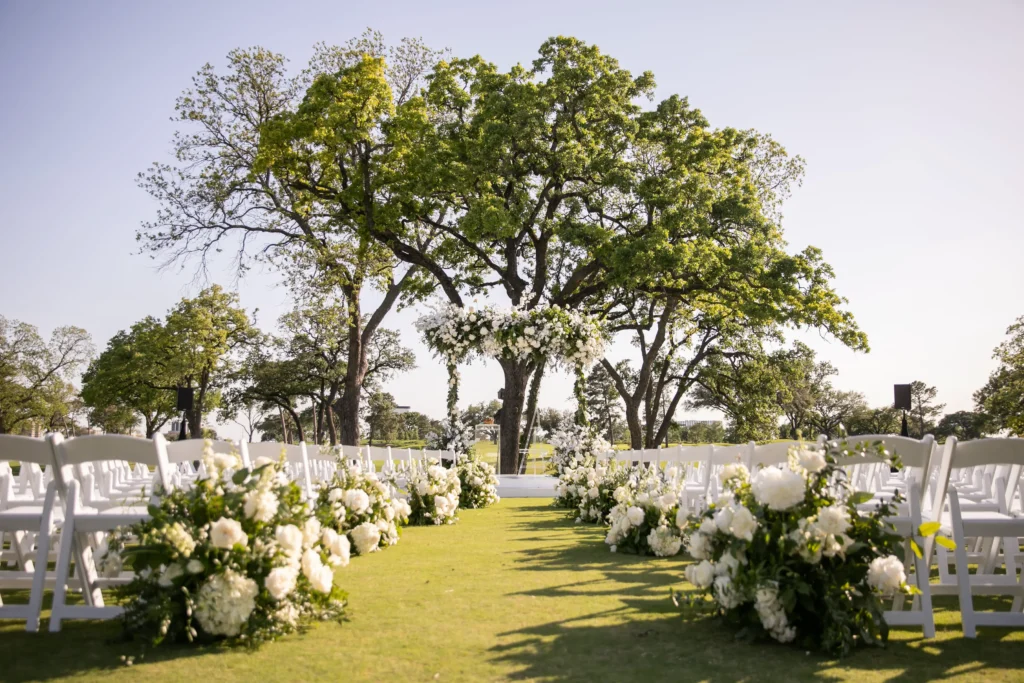Nigerian wedding traditions and customs are colorful & festive and filled to the brim with music, food, and dancing! Brooke Avishay of Orange Blossom Special Events in Los Angeles shares what she learned when planning a Nigerian wedding for her clients, Kevin and Leigh.
If you’re planning a Nigerian wedding or an American wedding that contains Nigerian elements, here are ten wedding traditions and customs you need to know:
Dowry
Before the ceremony can begin, the bride and her family will typically provide the groom and his family with a list of dowry requirements. In other words, the groom and his family are required to provide the bride and her family with all the items on the list before the engagement can be official. The dowry can contain anything from fruit, candy, and clothes to a new car. If the groom is unable to provide these items, the engagement cannot proceed.
Double Ceremonies
Most Nigerian American couples have two wedding ceremonies – the first is cultural and contains most of the traditional Nigerian elements. The second is typically a religious ceremony. Each ceremony is preceded over by a separate officiant.
No Guest List
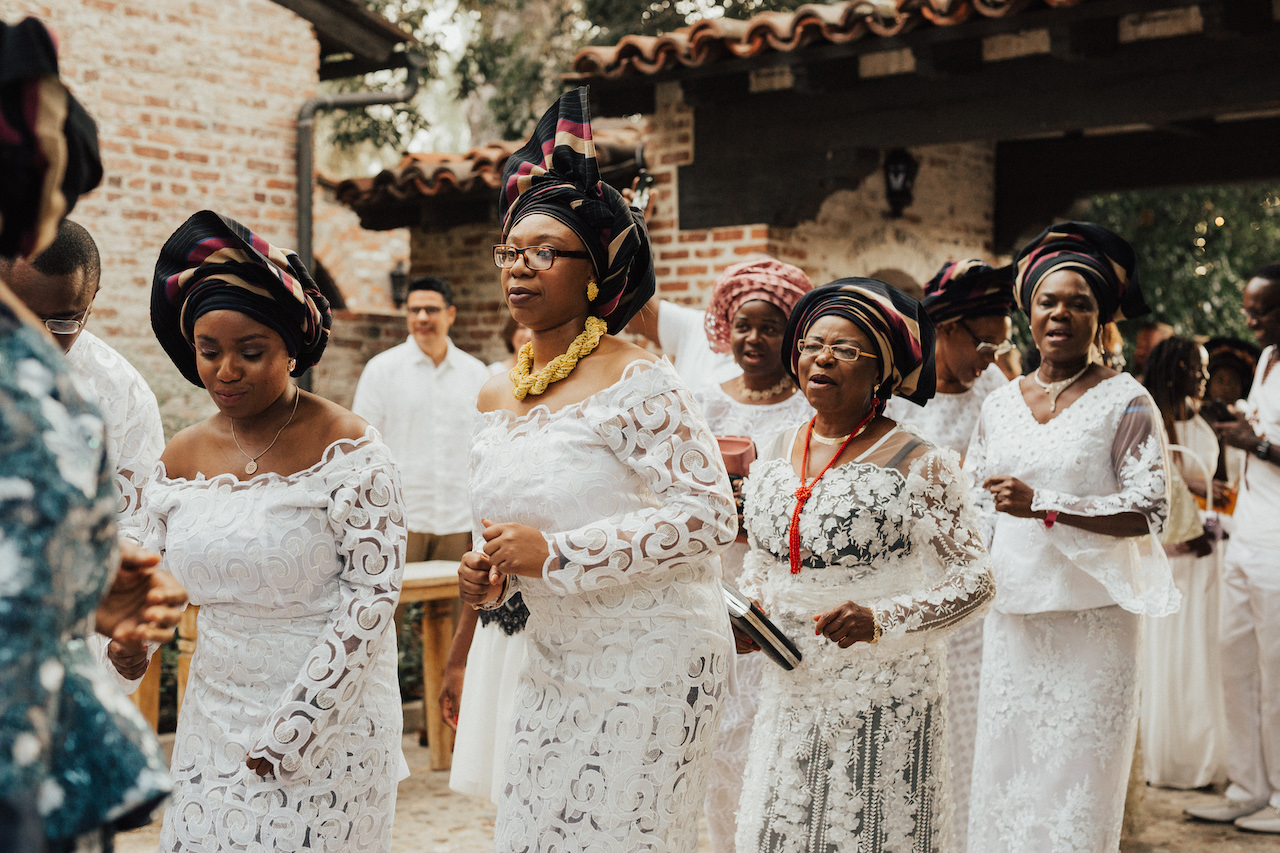
Traditionally, Nigerian weddings won’t have a guest list. The entire community is welcome, and an abundance of food and drink is available in case you end up with your entire community in attendance.
Alaga
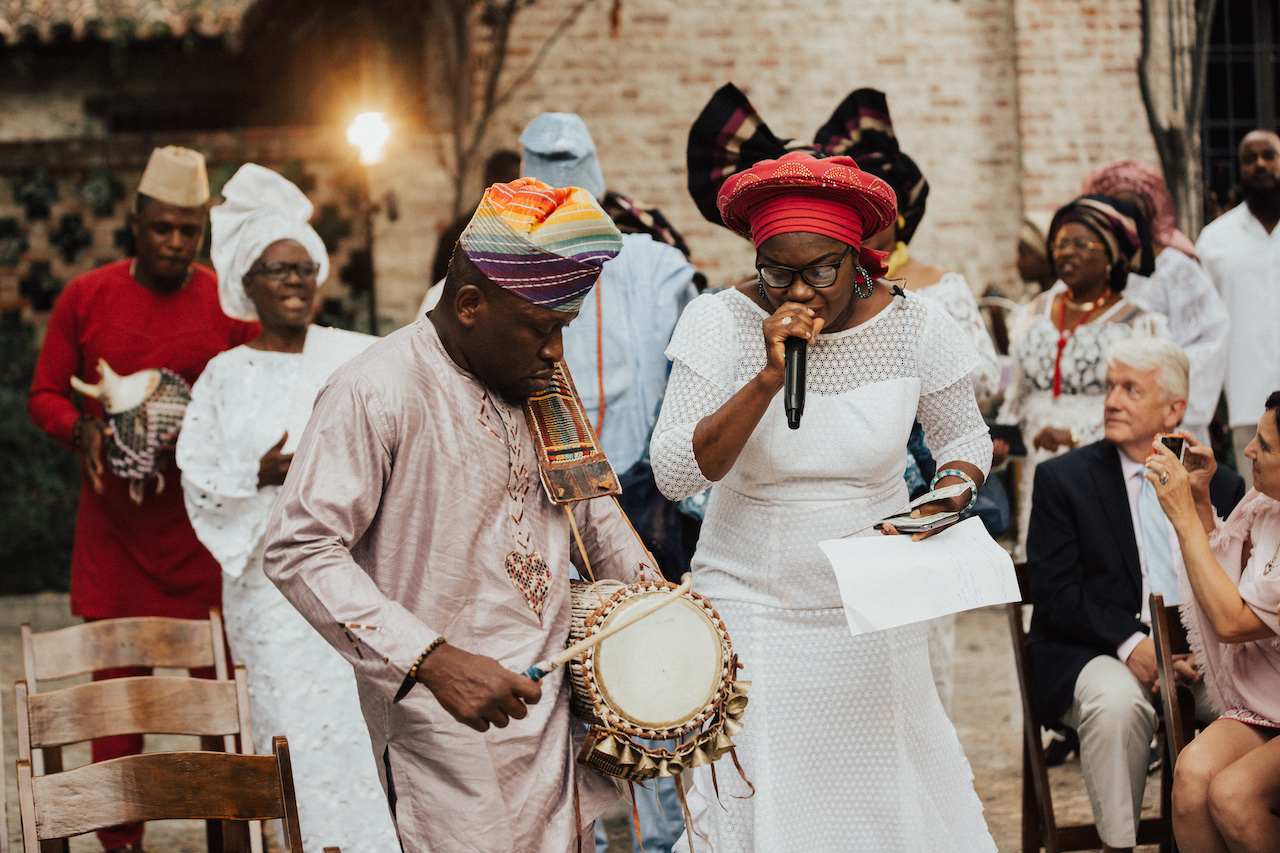
An Alaga, traditionally a woman, is a Nigerian wedding ceremony officiant, or emcee, whose job is to heckle the groom and his friends as entertainment for the wedding guests. It’s a pure delight to watch in person. Weaved with dancing, music, and laughter, the Alaga creates a live theatre of the wedding ceremony traditions that keep people completely engaged during the hour-long ceremony.
Gele
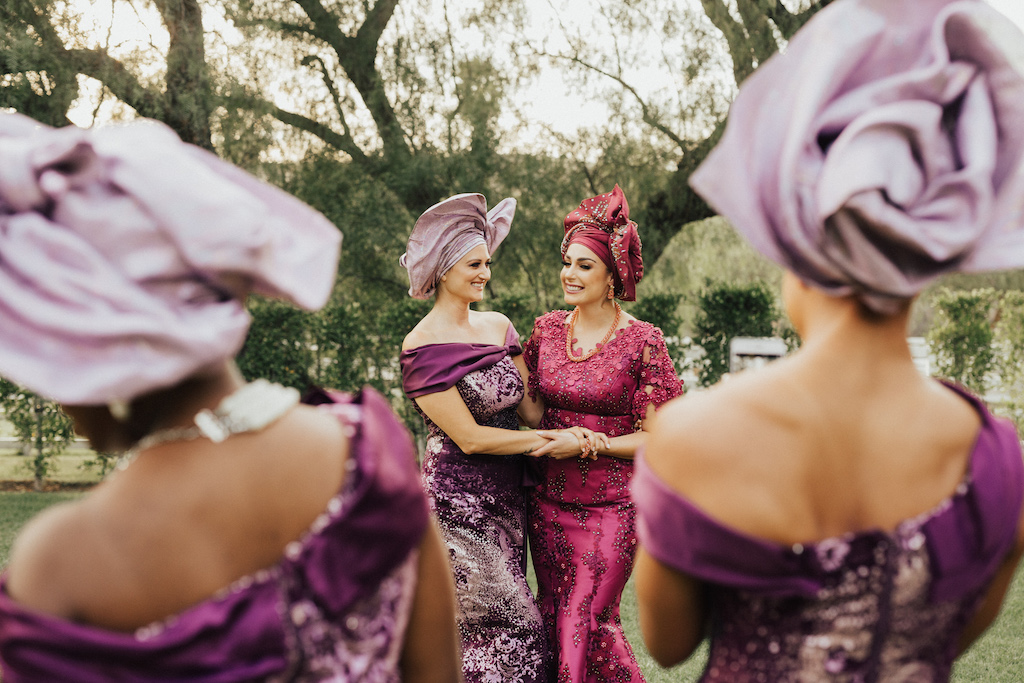
Nigerian brides wear a traditional, ornate headpiece called a Gele. The bridesmaids and families also follow suit and wear a Gele to honor the cultural traditions of the day. The wedding party typically sources their attire, including the Gele (for the ladies) and Fila (for the groom) from a seamstress who makes everything custom to coordinate.
Aso-Ebi
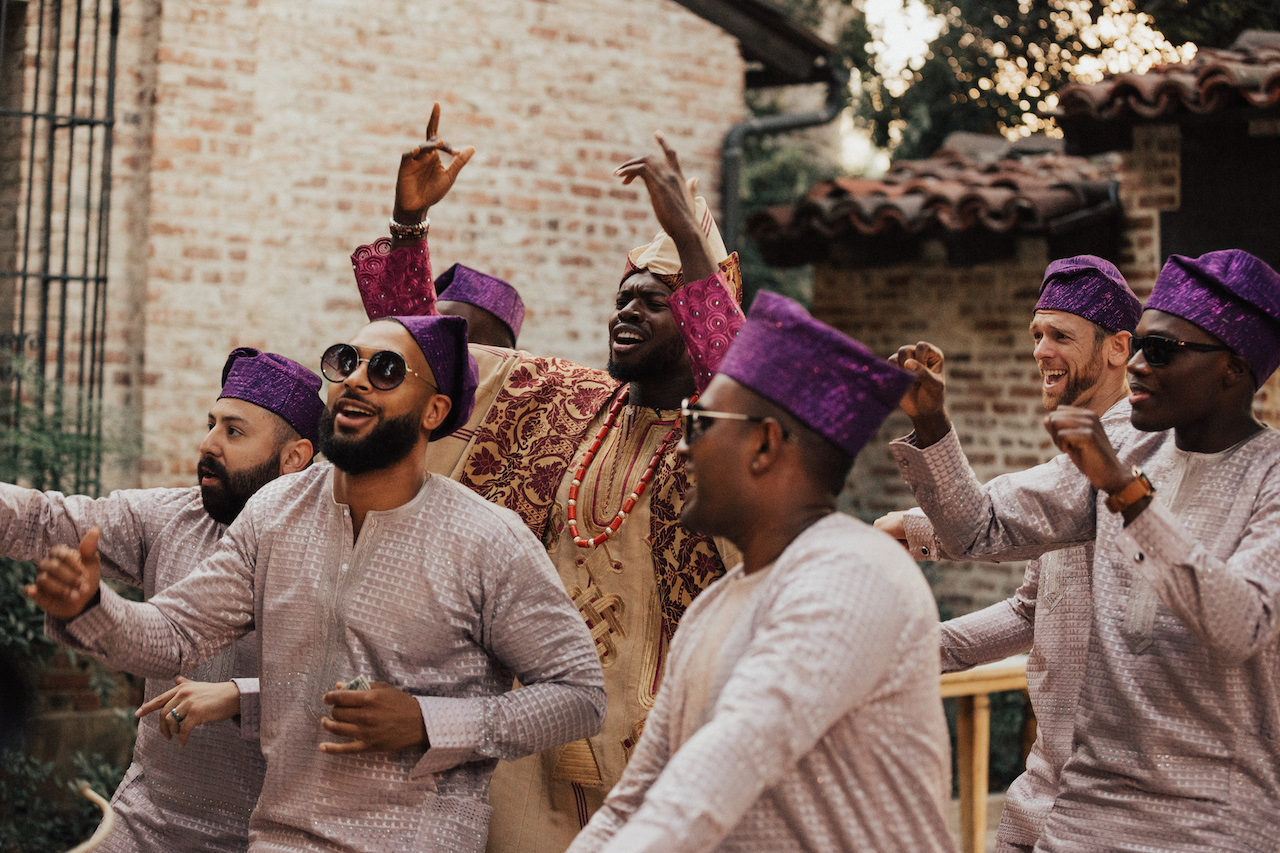
Aso-Ebi directly translates to “family clothes.” Nigerian couples choose what their guests wear by assigning a color for the bride’s family and a separate color for the groom’s family. At Kevin and Leigh’s wedding, the couple asked the bride’s family to wear pink and the groom’s family to wear white.
Proposal and Acceptance
In advance of the wedding, a Nigerian groom is required to write a letter of intent to the bride’s parents. This letter is symbolic of a proposal and is presented to the bride’s family. The letter is typically read aloud by a member of the bride’s family, after which acceptance is given to the groom on behalf of the bride’s family.
Prostration
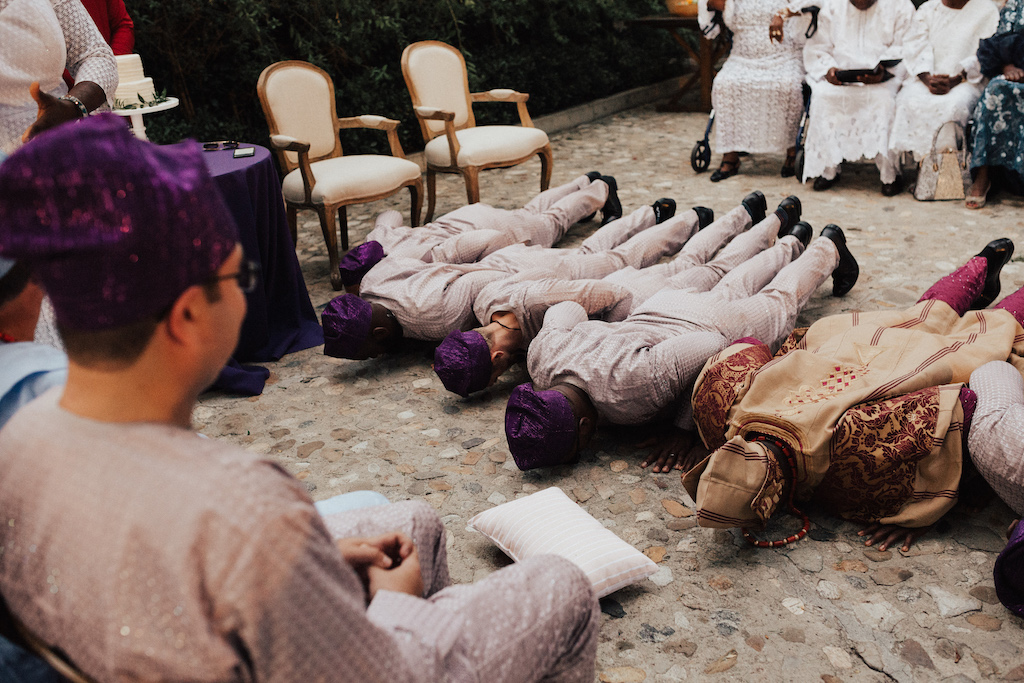
During the ceremony, it’s essential for the groom to prostrate. The groom, typically along with his groomsmen, will lay flat on the ground with their faces down at the feet of the bride’s family. This is symbolic of the groom honoring the bride’s family for raising his future wife. Throughout the ceremony, the groom has to earn the love and honor of the bride’s family, and this is one way he does it. The groom and groomsmen also prostrate at the feet of the groom’s parents as a sign of respect.
Wedding Cake
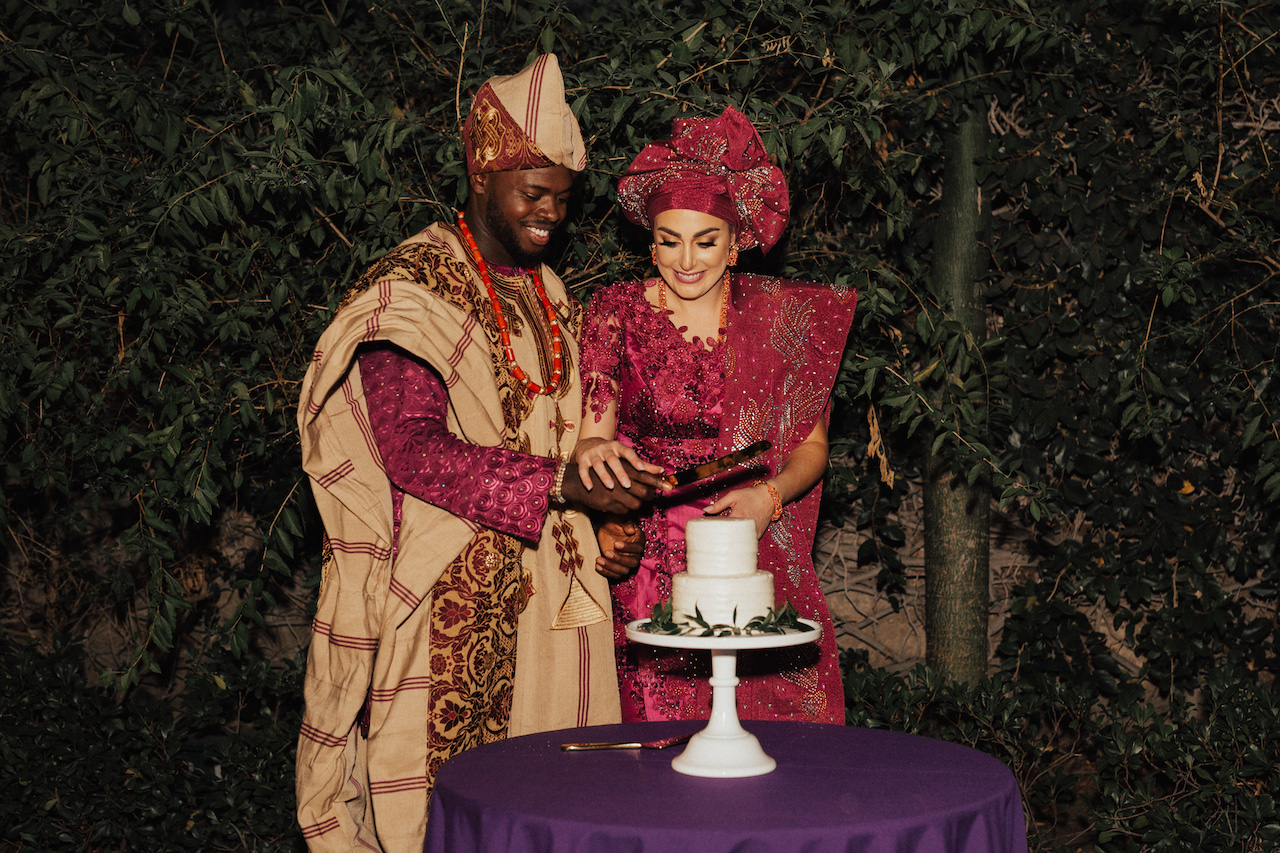
During a cultural Nigerian wedding ceremony, the bride and groom cut a cake! This tradition is different from what we’re used to seeing at American weddings when the cake is typically cut during the reception. The cake is cut during the Nigerian ceremony to symbolize rice and sweet happiness.
Food
Food for the party after the ceremony is typically provided by the family of the bride. Traditionally, the entire meal is prepared by the bride’s mom and her family in her home kitchen. Alternatively, couples can secure the services of a Nigerian caterer who can make an authentic, home-cooked meal for guests to enjoy while they wander on and off the dance floor.
Most importantly, Nigerian weddings are fun! You will not be disappointed if given the opportunity to attend this meaningful cultural event!
More International Wedding Customs & Traditions We Love
Sentimental Wedding Traditions From Around the World
This list is just the beginning! Dive and and learn about the beautiful wedding customs & traditions loving couples embrace in their celebrations the world over!
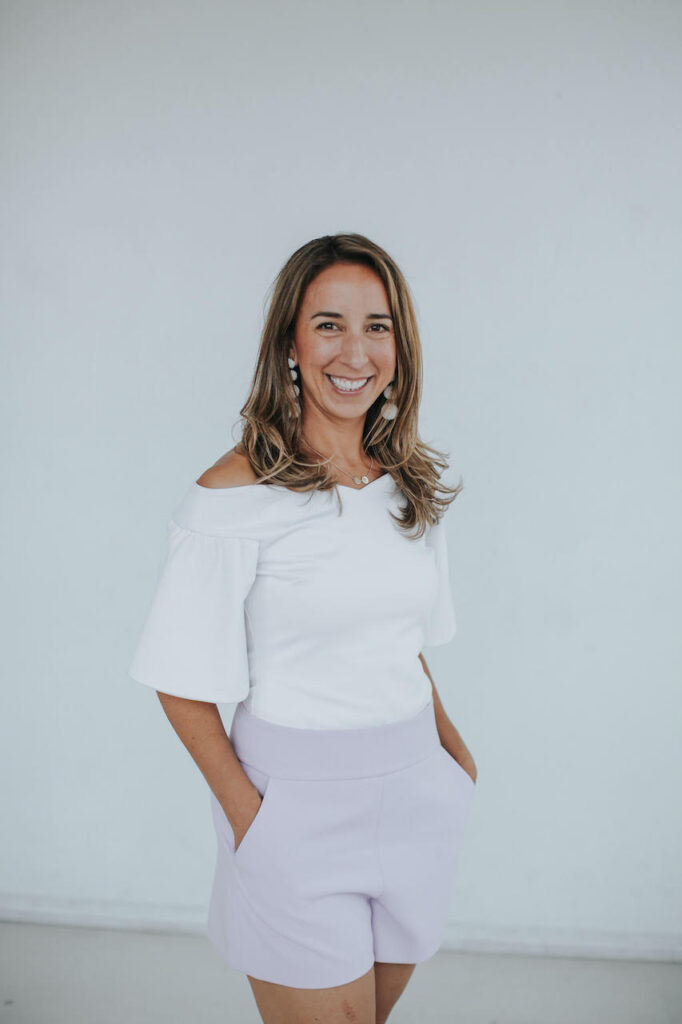
ABOUT BROOKE: Brooke Avishay is the owner and founder of Orange Blossom Special Events, a premier wedding planning production and design company located in Los Angeles. With 12+ years of experience planning extraordinary events in California and around the globe, she is a leading expert in the wedding and event industry.

